Table of Contents
Key Takeaways
- B-Vitamins and multivitamins are crucial for brain health and neurotransmitter synthesis.
- Acetylcholine’s role in ADHD can be supported with nootropics like ALCAR and CDP-Choline.
- Nootropics like Ashwagandha and Bacopa Monnieri help repair damaged neuroreceptors in ADHD.
- Noopept enhances cognition, memory, and provides neuroprotection.
- Combining specific nootropics with essential vitamins can optimize brain function for managing ADHD symptoms.
Depending on the severity of your ADHD symptoms, you may be able to use nootropics as an alternative to prescription stimulants like Adderall, Ritalin, Vyvanse and their variations.
I experimented for a year by using nootropics in place of the 20 mg of Ritalin I had been using 3-times a day for several years. And for the most part, I was successful in taming my Adult ADD symptoms.
Adult ADD Nootropic Stack
The ADD/ADHD stack I use includes:
- Mind Lab Pro
- Performance Lab® Energy – twice per day
- CDP-Choline – twice per day
- ALCAR – 750 mg 1-time per day
- L-Tyrosine – 500 mg 3-times per day
- Sulbutiamine – 400 mg twice per day
- Aniracetam – 750 mg twice per day
- Vinpocetine – 10 mg 3-times per day
- Performance Lab® Omega-3 – 3 GelCaps per day
- 1 tablespoon unrefined Coconut Oil or MCT Oil– 3-times per day
- Performance Lab® NutriGenesis Multi – 4 caps per day
During my one-year stimulant holiday, the ingredients in Mind Lab Pro along with L-Tyrosine, CDP-Choline, and ALCAR (included in Performance Lab Energy) kept my dopamine, norepinephrine, and acetylcholine levels high enough to maintain focus, motivation and improve my memory. Vinpocetine kept my brain blood flow at optimal levels. And Aniracetam and Sulbutiamine improved my mood.
But after a year I decided to go back to using 20 mg of Ritalin twice per day. Because my workload had me writing 10 hours per day. And maintaining working relationships with 2 or 3 clients at once.
By adding Ritalin back to my stack I was able to reduce the time it would take to complete a project from 3 days to 1 ½ days. Proof to me that my overall brain health couldn’t make it with nootropics alone.
The beauty of continuing to use L-Tyrosine, CDP-Choline, and ALCAR even after I started using Ritalin again was that I avoided the stimulant “crash” that is so common late afternoon when using stimulants. And I was able to reduce the original 20 mg Ritalin 3-times per day down to only twice per day.
And I have not experienced building up tolerance to Ritalin that is so common when using stimulants to treat ADD or ADHD.
Your situation may be different, or ADHD symptoms not as severe. Only you can decide if nootropics can replace ADHD meds. The stack I describe on this page is designed to be used with or without stimulant meds.
Whether you use this stack with meds or without, you’ll need to discover for yourself what dosages of each nootropic are ideal for you. Because the amounts that work for me may not work as well for you. You may need less NALT and/or ALCAR.
Experimenting is the key to success with nootropics. And knowing as much as you can about what’s going on in your brain that needs to be fixed. But after many years of recommending this ADHD nootropic stack to people just like us around the world, we know this works.
The pre-made nootropic stacks mentioned in this post include:
Prescription “Smart Drugs” vs. Nootropics for ADHD
This post is in response to many emails and questions I’ve been getting about how to treat Attention Deficit/Hyperactivity Disorder (ADHD) or Attention Deficit Disorder (ADD) with nootropics.
So if you are dealing with ADHD, hopefully this post will help. Especially if you are using stimulants like Ritalin, Adderall, Vyvanse, Focalin, or any of the other stimulant prescribed for ADD/ADHD. Or you are trying to deal with ADHD naturally by avoiding prescription stimulants.
This information can also help if you are a student or executive who uses prescription “smart drugs” like Adderall or Modafinil to boost productivity.
Here we’ll dig into the causes of ADHD or ADD in your brain. Symptoms associated with ADHD. And what you can do using nootropics, or nootropics stacked with stimulants to correct ADHD symptoms.
I’ll also include ways to potentiate the effectiveness of prescription stimulants with nootropics so they work better.
If you’ve never ‘officially’ been diagnosed with ADHD, but some of this resonates with you, you could be ADHD or ADD. And this may point you to some answers.
I’ve been ADD all my life. (ADD is ADHD without the hyperactivity). But it wasn’t until about 16 years ago, that a very wise psychiatrist identified what was going on. And why I had been struggling with focus and other problems with behavior. That no amount of self-help books on focus and management could ever correct.
Ritalin turned the lights on for me. And completely changed my life for the better. This was the seed that sprouted my interest in neuroscience and nootropics. And ultimately launching Nootropics Expert®
What is ADHD & ADD?
Attention Deficit/Hyperactivity Disorder (ADHD) or Attention Deficit Disorder (ADD) are associated with attention and executive function in your brain.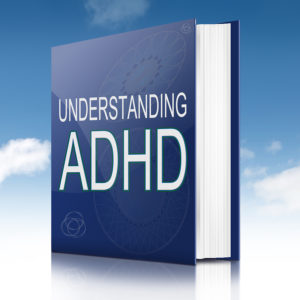
Your prefrontal cortex directs behavior, thought and feeling which are all associated with working memory. This fundamental cognitive function is what most “healthy” people take for granted, are what make up executive function.
This executive function and working memory give you the ability to:
- Regulate your attention
- Inhibit inappropriate behavior and thought
- Monitor your actions
- Plan and organize your future
If you can’t focus on the task at hand, blurt things out at inappropriate times, have little control over your emotions or actions, and can’t seem to stick to that careful set of goals you wrote down, you may be ADHD.
The Role of Norepinephrine and Dopamine in ADHD
Norepinephrine and dopamine are the primary neurotransmitters involved in ADHD because they play an essential role in attention and thinking.[i]
The “inattentive” type of ADHD is related to issues with the norepinephrine, and the “hyperactive and impulsive” type of ADHD is linked to dopamine dysfunction.
These two neurotransmitters work in concert to maintain alertness, increase focus, sustain thought, effort, and motivation. The only difference between the two is the presence of a hydroxyl group. And dopamine is the precursor to norepinephrine synthesis in your brain.[ii]
Much of what we read about ADHD focuses on dopamine’s function in your brain. But norepinephrine (NE) plays a critical role in activating your reaction to events. And how you respond to the event.[iii] NE is essential for collecting information coming in through your senses. And then modulating your brain’s response.
Any disruption in this NE system can result in ADHD, Post Traumatic Stress Disorder (PTSD), sleep disorders and more.[iv]
For example, NE working with postsynaptic α2-adrenoceptors (α2-AR) in your brain play an essential role in helping you focus and eliminate distractions when you’re paying attention to something.[v]
This is just one example of what goes wrong with ADHD brain function. My point in bringing this all up is not to overwhelm you with neuroscience.
But to make clear that simply suggesting too much or too little of a single neurotransmitter like dopamine cannot explain the complexity of ADHD.
So using a nootropic like L-Tyrosine to amp up dopamine in your brain is often not enough to take care of ADHD symptoms. Or using Adderall with someone who has a problem with alpha2-receptor binding with norepinephrine may not get much benefit.
This is the reason that experimenting with various stimulants and/or nootropics is often the only way to find a long-term solution to keeping ADHD under control. And why some respond better to a drug like Ritalin and not as well to Adderall. Or vice versa.[vi]
And recent research shows serotonin and acetylcholine are involved too. Mostly the “hyperactivity” part of ADHD which includes movement, inattention, and impulsivity.[vii]
Smart Drugs Used to Treat ADHD Symptoms
If you are truly and clinically ADHD or ADD, it is unlikely that optimizing your diet, getting plenty of sleep, using nootropics, and exercising regularly will get the symptoms of ADHD under control.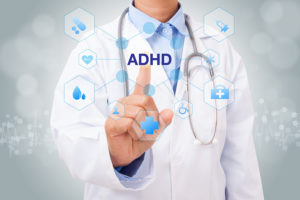
The most severe forms of ADHD often benefit from using prescription medication. Otherwise known as “smart drugs” in some circles, these meds are typically amphetamines or methylphenidate.
The amphetamine-class of ADHD prescription drugs includes Adderall (75% dextroamphetamine salts and 25% levoamphetamine salts), Dextroamphetamine, and Vyvanse (Lisdexamfetamine).
The methylphenidate-class of ADHD medications includes methylphenidate (Ritalin) and its variants like Concerta, and Focalin.
Adderall and Ritalin both work with dopamine and norepinephrine in your brain. But through different mechanisms of action.
Ritalin is a pure uptake inhibitor of dopamine and norepinephrine without any other presynaptic activity.[viii] Adderall on the other hand, has additional presynaptic activity, releasing dopamine and norepinephrine from presynaptic neurons.
The idea for the last 60 years or so, has been if we could boost dopamine and norepinephrine in the brain, ADHD symptoms would go away. As long as we’re taking the medication.
Why Prescription Attention Deficit Hyperactivity Disorder Meds Often Don’t Work
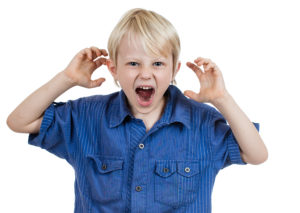 In an ideal world, taking one pill 2 or 3 times a day to treat ADHD would put your life back on track. And help you function like a ‘normal’ person.
In an ideal world, taking one pill 2 or 3 times a day to treat ADHD would put your life back on track. And help you function like a ‘normal’ person.
But real-world results often don’t work out as well as theory. For several reasons. For example, what if there’s not enough dopamine or norepinephrine in your brain in the first place? Then stimulants will not work as well as planned because they haven’t the neurotransmitters in place to work with.
You could also have problems with not enough or damaged neuroreceptors. Natural aging processes can slow blood flow or inhibit the production of neurotransmitters. A lack of acetylcholine could prevent your neurotransmitters from doing what they were designed to do.
This is where nootropics can help save the day in treating the symptoms of ADHD.
Optimizing Dopamine & Norepinephrine
 One of main culprits contributing to ADHD symptoms is a lack of dopamine (DA) and norepinephrine (NE) in your brain. Or your brain is not using the available DA and NE effectively.
One of main culprits contributing to ADHD symptoms is a lack of dopamine (DA) and norepinephrine (NE) in your brain. Or your brain is not using the available DA and NE effectively.
Stimulants like Adderall and Ritalin work to boost levels and use of these two critical neurotransmitters.
Production of dopamine and norepinephrine in your body and brain follows this metabolic pathway:
Phenylalanine → Tyrosine → L-DOPA → Dopamine → Norepinephrine
Dopamine is converted to norepinephrine by the enzyme dopamine β-monooxygenase, with O2 and ascorbic acid (Vitamin C) as cofactors.
Norepinephrine can be further converted into epinephrine by the enzyme phenylethanolamine N-methyltransferase with SAM-e as cofactor.
Nootropics to boost dopamine include:
-
-
- L-Tyrosine – L-Tyrosine is the precursor to producing dopamine in your brain. L-Tyrosine enhances working memory, executive function, creative flow states, reduces stress, improves mood and is anti-anxiety.
Suggested dosage of L-Tyrosine for ADHD is 350- 500 mg twice per day. I successfully stack 500 mg of NALT or L-Tyrosine 3-times per day. Once each time I dose with Ritalin, and a last dose mid-afternoon to prevent a stimulant crash later in the day.
- Mucuna Pruriens (L-Dopa) – Mucuna works as an antioxidant and heavy metal chelator, improves memory & cognition, reduces depression and boosts libido. L-Dopa is also the direct precursor to dopamine. Suggested dosage of Mucuna Pruriens is 250 – 500 mg per day.
But if you’re just starting out with nootropics, I highly recommend using L-Tyrosine or NALT instead of Mucuna Pruriens. Because Mucuna can be more difficult to dose since it directly stimulates the production of dopamine. L-Tyrosine and NALT are more ‘forgiving’ when it comes to dosage.
- Phosphatidylserine (PS) – PS can help improve alertness, attention, cognition, memory, recall and mood, and lower anxiety. All issues associated with ADHD. Phosphatidylserine is a phospholipid component of the membrane encasing every one of your brain cells. PS helps maintain the fluidity and permeability of brain cells. Improving the flow of dopamine and acetylcholine. Suggested dosage of PS is 1—mg 3-times per day.
- Pine Bark Extract – Pine Bark extract helps prevent decreases in dopamine and norepinephrine. And the glutathione (GSH) and GSH-disulphide reductase (GSSG-R) ratio. Neurotransmitter problems which contribute to hyperactivity in ADHD. Pine Bark extract also helps boost blood flow in the brain by increasing nitric oxide which helps dilate blood vessels. And it helps reduce oxidative stress, membrane damage, DNA damage, inflammation, and glycation.
I’ve found one of the most potent forms of Pine Bark extract comes in both Mind Lab Pro® and Performance Lab® Mind.
- L-Tyrosine – L-Tyrosine is the precursor to producing dopamine in your brain. L-Tyrosine enhances working memory, executive function, creative flow states, reduces stress, improves mood and is anti-anxiety.
- N-Acetyl L-Cysteine (NAC) – NAC is an amino acid that regulates the amount of glutamate and dopamine in your brain. NAC can be used to treat the symptoms of ADHD. And even helps eliminate some of the negative side effects associated with prescription ADHD stimulants. Suggested dosage of NAC is up to 600 mg 3-times per day.
A word of caution here in boosting the catecholamines dopamine and norepinephrine. Too much of either is not a good thing. In fact, excess levels of either will throw your neurotransmitter levels out of balance. And can cause anxiety, insomnia and panic attacks.
Taming Hyperactivity with Nootropic Supplements
The “H” in ADHD stands for hyperactivity. Boosting levels of dopamine and norepinephrine can help balance out hyperactivity. And help calm and focus your mind. But often simply boosting or balancing these neurotransmitters is not enough.
Recent studies show that serotonin and dopamine interaction also play a role in ADHD.[ix] Serotonin is involved in the uptake, synthesis and breakdown of dopamine in your brain. Problems with serotonin seem to contribute to behavior and impulse control.
Much more research needs to be done in this area of ADHD. But we can help control and balance serotonin with nootropics.
- 5-HTP – This amino acid is synthesized from the amino acid tryptophan. And 5-HTP is the immediate precursor to serotonin in your brain.5-HTP can help relieve anxiety and depression, fibromyalgia, insomnia, migraines and likely the hyperactivity, depression and anxiety associated with ADHD. Suggested dosage of 5-HTP is 50 mg up to 3-times per day. Please see my dosage notes and warnings before you try supplementing with 5-HTP.
-
-
- Ginseng – Ginseng helps calm anxiety, and boost attention, concentration and memory. Ginseng provides neuro-protective effects on the dopaminergic-pathway which can help with ADHD. And ginseng is a serotonin and norepinephrine reuptake inhibitor (SNRI).Suggested dosage of Ginseng is 100 – 400 mg per day.
-
- L-Theanine – L-Theanine commonly found in green tea helps boost alpha and theta brain waves, is anti-anxiety, boosts cognition and memory and reduces insomnia. L-Theanine also helps boost GABA, serotonin and dopamine levels in your brain. Suggested dosage of L-Theanine is 150 mg 2 – 3-times per day.
-
- Rhodiola Rosea – Rhodiola Rosea helps improve alertness, energy, memory and mood, is anti-anxiety and antidepressant, reduces fatigue and boosts memory and concentration. Rhodiola influences serotonin and norepinephrine levels in your brain. Suggested dosage of Rhodiola Rosea extract is 150 – 200 mg per day.
-
- Saffron – Saffron acts as a dopamine and norepinephrine reuptake inhibitor. Similar to how Ritalin works. A randomized double-blind study was conducted with 54 children 6-17 years old who were given 20 – 30 mg methylphenidate or 20 – 30 mg Saffron per day for 6 weeks. At the end of the study researchers concluded, “Short-term therapy with a saffron capsule showed the same efficacy compared with methylphenidate.” Suggested dosage of Saffron is 30 mg per day.
-
- Vitamin B6 (Pyridoxine) – Vitamin B6 helps your brain make serotonin, norepinephrine and melatonin. Suggested dosage of B6 is up to 100 mg per day.
-
- Vitamin B9 (Folate) – Folate (NOT folic acid) as a nootropic helps your brain make dopamine, epinephrine, norepinephrine and serotonin. Suggested dosage of Folate is 400 mcg per day.
-
- Vitamin B12 (methylcobalamin) – is a cofactor in the synthesis of neurotransmitters acetylcholine, dopamine, GABA, norepinephrine, and serotonin. Suggest dosage of B12 is 100 mcg per day.
B-Vitamins are Critical in Controlling ADHD
Take note that several of the B-Vitamin group are involved in the production of the neurotransmitters involved in ADHD. I recommend adding a good B-Vitamin Complex that include methylfolate (not folic acid) and methylcobalamin (not cyanocobalamin) to your stack. Both in a pure nootropic stack as well as when using any of the ADHD prescription stimulants.
But it’s not only the B-Vitamins that are required for a healthy, fully functioning brain. We also need each of the 13 vitamins and 13 minerals needed for everything from blood flow, neurotransmitter synthesis and release, brain signaling, and neuroprotection.
I’ve found the easiest way to make sure my ADD brain gets all the vitamins and minerals it needs every day is to also use a multivitamin/mineral supplement.
The best I’ve found so far is the multivitamin called Performance Lab® NutriGenesis Multi. It’s better than the “raw-food” multi I was using for years. And makes a difference I can actually feel.
But please note that this multi is in addition to a B-Vitamin Complex because the ADHD brain needs more of these critical nutrients than what is normally in any good multivitamin.
The Role of Acetylcholine in ADHD
Researchers at Vanderbilt University Medical Center discovered that there are three types of ADHD.
We’ve already covered the “inattentive” type that is related to issues with the norepinephrine transporter gene. And the link to the dopamine transporter gene in the “hyperactive and impulsive” type.
But the research team now report that a variation in the choline transporter gene is associated with a “combined” type of ADHD. Symptoms include both inattention and hyperactivity/impulsivity.
Choline is required to synthesize acetylcholine (ACh) which is needed for memory, motor-control, focus, learning, concentration, and cognition.
If you have the “combined” type of ADHD it’s likely due to a mutation in this choline transporter gene variation.
Nootropics to boost acetylcholine include:
- ALCAR (Acetyl-L-Carnitine) – ALCAR donates am acetyl group in the presence of Coenzyme-A for the synthesis of acetylcholine. And it’s also a shuttle transport for fatty acids through brain cell membranes. It shuttles fatty acids into mitochondria for ATP synthesis, and shuttles toxic byproducts out.
Research from the Linus Pauling Institute shows ALCAR will restore mitochondrial function, replenish age-related changes to mitochondrial structure, and helps replenish acetylcholine levels to your brain and body.
And other studies show that ALCAR stimulates nerve growth factor. Helping support survival and growth of neurons. Which is particularly important for the ADHD brain and especially when using prescription stimulants that may be tough on neurons.
- Alpha Lipoic Acid (R-LA) – Alpha Lipoic Acid increases acetylcholine production by activation of choline acetyltransferase and increases glucose uptake. This process supplies more Acetyl-CoA for the production of acetylcholine.
Alpha Lipoic Acid enhances insulin-stimulated glucose transport and metabolism for better brain cell performance. And R-Lipoic Acid provides strong antioxidant support because it helps regenerate and recycle existing antioxidants in your brain including Vitamins C & E, glutathione, and CoQ10.
I’ve since switched the ALCAR supplement in my ADD stack to Performance Lab® Energy because this pre-formulated energy stack contains my preferred dose of ALCAR. But note that I also take another 500 mg of ALCAR with L-Tyrosine late afternoon to prevent a stimulant crash.
Performance Lab® Energy also contains Alpha Lipoic Acid and ALCAR which helps my ADD brain produce acetylcholine.
- CDP-Choline (Citicoline) – Citicoline helps synthesize phosphatidylcholine (PC), a major phospholipid found in brain cell membranes. And provides choline for the synthesis of acetylcholine while providing antioxidant activity.
The CDP-Choline (Citicoline) in my ADD stack is supplied by Mind Lab Pro® which is the base of my nootropic stack.
But a suitable alternative to MLP is Performance Lab® Mind which contains the branded form of citicoline called Cognizin®.
Performance Lab® Mind and Mind Lab Pro® also contain L-Tyrosine, Phosphatidylserine (PS), and Maritime Pine Bark extract.
Repairing Neuroreceptors Needed to Control ADHD
One of the issues with neurotransmitters and ADHD are damaged or non-existent receptors. Dopamine, norepinephrine and serotonin have less receptors to bind to for cognition and mood control.
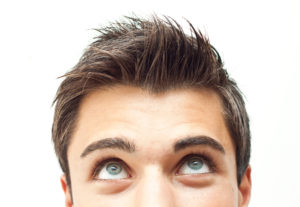
Once again, nootropics come to the rescue in helping control ADHD. You can add one of these nootropics to your stack to help boost neuron and receptor health.
- Ashwagandha – This adaptogen, Ashwagandha helps reduce anxiety and depression. And helps reconstruct axons, dendrites and synapses involved in neurotransmitter signaling in your brain. Suggested dosage of Ashwagandha extract is 250 – 500 mg per day.
-
- Bacopa Monnieri – Bacopa helps boost memory and cognition, improves mood, and reduces stress. This adaptogen affects brain levels of acetylcholine needed for neurotransmitter signaling. And the two active components of Bacopa Monnieri called bacosides A and B not only improves signaling of electrical impulses between neurons in your brain. Bacosides also help rebuild damaged neurons. Suggested dosage of Bacopa is up to 450 mg per day.
-
- Lion’s Mane – Lion’s Mane Mushroom is known for stimulating Nerve Growth Factor, improving cognition and memory, and relieving depression. Lion’s Mane stimulates the repair and creation of neurons in your brain. Neurons needed for dopamine and norepinephrine to control ADHD. Suggested dosage of Lion’s Mane Mushroom starts at 500 mg per day. Note: that there’s an effective 500 mg dose of Lion’s Mane full-spectrum fruiting body in each dose of Mind Lab Pro®
-
- Noopept – Noopept helps boost cognition, memory, learning, perception, logical thinking and mood. Noopept increases Nerve Growth Factor, and Brain-Derived Neurotrophic Factor (BDNF) critical for neuroplasticity and Long-Term Potentiation critical for long-term memory. Noopept also prevents the release of excess glutamate in your brain. Providing potent neuroprotection for neurons and reducing damage. Suggested dosage of Noopept is 10 – 30 mg per day.
Please note that I haven’t linked through to supporting clinical studies for each of the nootropics I listed above. But you can click through to my full review of each nootropic for extensive research supporting each supplement.
Nootropics for Kids
ADHD and ADD is most often diagnosed in children. The latest statistics (2011) from the CDC in the USA shows about 11% of children 4 – 17 years of age (6.4 million) have been diagnosed ADHD.[x] And that’s just for the USA.

Although ADHD is usually first diagnosed in children, it often lasts into adulthood. I sometime wonder how my life would have been different if I had been declared ADD when I was a kid.
But it wasn’t until the late 1960’s that the American Psychiatric Association formally recognized ADHD as a mental health disorder. I wasn’t declared Adult ADD until much later.
The thing is many parents are wary about putting their children on powerful, prescription ADHD meds. Kids’ brains continue to develop until your early 20’s. So is it a problem messing with brain chemistry at such a young age? Only time will tell and if the benefits outweigh any potential risk.
Hence the reason why parents are looking for ‘natural’ alternatives like nootropics to treat ADHD in children. But are nootropic supplements any safer than prescription stimulants?
Common sense tells me that using L-Tyrosine could be safer than Ritalin for boosting dopamine. And Rhodiola Rosea could be safer than stimulants or antidepressants for taming hyperactivity.
But many children with ADHD, natural supplements may not be enough. I’m not a doctor, and don’t even play one on TV. I’m an ordinary biohacker who has learned as much as I can to help myself. And fix my own cognitive performance issues. Including Adult ADD.
So I highly recommend you find and work with an open-minded psychiatrist with your child. You may be pleasantly surprised to find you may be able to reduce or eliminate prescription ADHD meds altogether to enhance cognitive functions. And maybe not. But the long-term health of your child could be worth the time investment to find out.
In Summary
I’ve been wanting to write this post since I started Nootropics Expert®. If you are ADHD or ADD, I hope you found this useful. And I’d appreciate your feedback, and share your experience with treating ADHD with nootropics in the comments section of this post below.
Please share this post with anyone you think would benefit. Including discussions about nootropics for ADHD on reddit or Longecity.
One final note. Neurotransmitter balance is key to taming ADHD. I strongly caution you to take it slow if you’re just starting out with nootropics. Carefully read each of the extended articles in the List of Nootropics you are considering trying.
You need to be careful about side effects, prescription drug interactions, dosages and how your body reacts to each supplement to ensure healthy brain function.
But I’m confident that with careful planning and a long-term commitment, your cognitive enhancement will be just as successful as I have been in living and thriving with my Adult ADD.


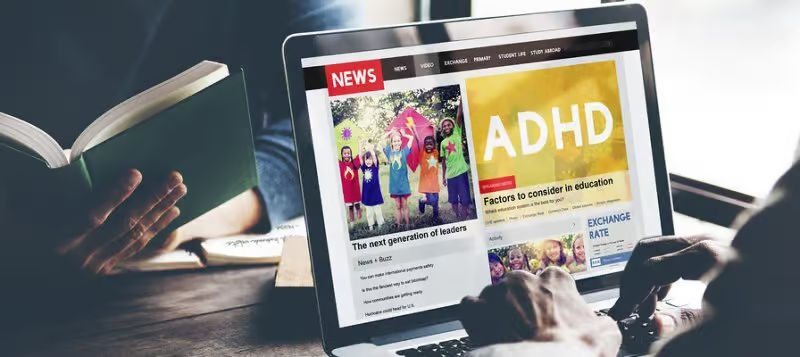





Join The Discussion - 863 comments
Shane
December 1, 2018
David, you wrote, “ Any disruption in this NE system can result in ADHD, Post Traumatic Stress Disorder (PTSD), sleep disorders and more.”
This really piqued my interest! About six years ago after a life time of heavy caffeine use ( unaware at the time I was self medicating my adhd ) I had to quit due to heart palps and GI issues. In addition to the normal withdrawal symptoms I began almost immediately having sever panic attacks for the first time in my life. I did not know what was going on at the time. After A few weeks I couldn’t take it anymore so I started caffeine again. The panic attacks abated. But, a few weeks later the heart palps and GI issues became unbearable so I had to quit again. This time the withdrawals were 4 times as bad and the panic attacks were much worse. This continued steadily for over two years! In that time if I had a little caffeine I’d feel great but within three days an upsurge of panic attacks would hit.
I’m wondering if the sudden removal of the caffeine and it’s effect on my norepinephrine system as mentioned in your article was the cause. It was like I went immediately into having all sorts of PTSD symptoms.
David Tomen
December 1, 2018
Shane, I not a doctor or ‘medical professional’ by any stretch. But what you describe sounds like caffeine withdrawal symptoms. Is it possible for you to do tiny doses of caffeine everyday without the adverse side effects and to avoid withdrawal symptoms?
Shane
December 7, 2018
David,
I wish I could continue caffeine but I can’t unfortunately.
It has been a few years since I quit caffeine. The sudden cessation of it brought on the issues I mentioned above and they lasted for a little more than two years. I certainly had the initial and more common caffeine withdrawals but I think there was something deeper going on. I’ve had many doctors take a guess at what it was. They all agree the caffeine was medicating something and all agreed that that stopping the caffeine brought on the other symptoms. But, all had different theroies about the mechanism and treatment. What you wrote in the article about a disruption in The norepinephrine system was as good or better than anything they told me. I guess it’s why they call it ‘practicing’ medicine. LoL!
Thanks for your time!
David Tomen
December 7, 2018
Shane, thanks for your feedback on this issue. And the ‘practicing medicine’ would be hilarious if it was’t so spot-on about much of mainstream healthcare. And why we’re often on our own figuring this stuff out.
Shane
November 30, 2018
Hey David. I was until recently taking Concerta. The only supplements I have tried while on it have been magnesium oil, zinc, Tongkat Ali, Horny Goat Weed, and ashwhaganda. I started having horrible heart palps, blurry vision, some breathing issues, and a feeling in my chest like you get when running sprints on a cold day, that cool burn sensation. I had wondered if any of those supps might have interacted badly with the Concerta, but even without taking them I was still having side effects from the Concerta. I only hope I haven’t done permanent damage to myself. I’m uneasy about trying another med. I may just go all in with the stack in your article and see how that goes. It’s a bummer, because before the side effects started Concerta was a miracle for me! Even my anxiety disappeared on it! Well, I guess the search continues.
David Tomen
December 1, 2018
Shane, it’s likely either Tongkat Ali or Horny Goat Weed that caused these side effects. I suggest stopping those two supplements and see how you feel in a couple of days.
The stack I describe in this post was designed to work specifically with a stimulant like you are using. It works for me and for thousands of others.
The key to making nootropic supplements work for you is start slow and low. And be willing to try different things. But also to learn everything you possibly can about a supplement “before” you try it. And learn the exact mechanism of action of Concerta so you can anticipate interactions with other supplements.
Shane
December 17, 2018
I forgot to mention that I was also using Maca powder. I wonder if this could have caused problems too? Since we last talked I’ve done a little more research and leaning that it was indeed the HGW and the Tongkat as the main culprits and not the Concerta. Luckily I was able to get squeezed to see my doc tomorrow and I will be running it all by him.
David Tomen
December 17, 2018
Shane, Maca is acts like a MAOI which is going to affect dopamine in your brain and possibly serotonin to a lesser degree. I suggest doing a search and learn the exact mechanism of action or pharmacology for various kinds of maca. And unless you lucked out and have a great homeopathic physician as your family doc I doubt he’ll be much help in this area.
Shane
December 17, 2018
Thanks David. Yeah, sounds like a definite no-no to mix with Concerta. I appreciate your time.
Shane
November 27, 2018
David, have you ever encountered a supplement that didn’t mix well with your Ritalin and caused you to have any unpleasant side effects?
Thanks,
Shane
David Tomen
November 27, 2018
Shane, yes I have but it’s difficult to nail down if Ritalin was the culprit. The one that comes to mind is 5-HTP. I’ve found I need a little during the day to keep dopamine and serotonin in balance. But when I first started I was using too high a dose and felt like crap and sweat a lot. Another I’ve found that does not work period is melatonin.
I’m sure there may be others but nothing else comes to mind at the moment.
Be interested in what your experience has been.
Harm Timmerman
November 10, 2018
Hell David
I am 51 and have ADD.I went on Ritalin but too many side effects and it wore off quickly.
I tried( ILS ) on 8000 hrtz. INTEGRATED LISTENING SYSTEMS where the workout stimulates blood flow to the cerebellum by combining workouts that involve balance and coordination at the same time while one has earphones that vibrates.The vibrations stimulate blood flow to the cerebellum. It worked for me.People around me said that I don’t jump from one topic to another any more; but one has to do it permanently and the effects went down when I stopped.
Corrective Chiro: I went to a corrective chiro and found that my neck was 27 mm off target. That means that when the neck is bend too far, the neuro signals have difficulty to pass through the spinal cord.The ganglia in the brain who regulates blood flow to the cerebellum can’t do the job and the cerebellum get too much or too little blood and ones brainwaves goes up or down.The same principle apply when a woman gets osteoporosis and the vertebrae bends. The neurosignals can’t get through to the kidneys because parts of the vertebrae disintegrates and cause the bend and influence the signals to the kidneys or liver.The doctor treats the kidneys but the problem is in the bended vertebrae.Think of a hosepipe. The more it bends the more the water struggle to get through.It worked for me. I felt that my awareness went up. I noticed that 8 out of 10 times I remembered where I put my pen.I saw scans of people with ADHD before and after 3 months of corrective chiro.The brain shows red because it is overheated due to too much blood and after 3 months the brain shows purple and blue, indicates that the blood flow is normal because the ganglia gets the neuro signals that regulates the blood to the cerebellum which is the software centre of the brain.ADD is on the increase because everybody’s necks is bend for the most part of the day due to smartphones and computers.I stopped the treatment because I am in a country now that don’t have corrective or neuro chiropractors.
TMS. Trans cranial magnetic stimulation. They put pads on your head and treat the affected area in the brain with magnetic impulses.ADHD , stroke , brain damage patients benefits because it stimulates growth in the affected areas.It is very expensive as well.
I saw a Russian doctor who cured autism patients by sorting out gut bacteria. Our guts give of serotonin.Vaccines and the antibiotics kills the good gut bacteria.We can also get rid of the mercury fillings. Mercury is bad for our brains and one can get stuff from a naturopath to pull out metals in the body.It is a good idea to test one self for metals in our systems.Ones cholesterol might be too high because the liver forms a protective layer in the veins to prevent you from absorbing the mercury.
What would you recommend for focus, motivation , memory and impulsive behavior ?
David Tomen
November 11, 2018
Harm, the stack I have highlighted in the top section of this post works well for focus, motivation and memory. And scroll down the the section titled, “Taming Hyperactivity” for impulsive behavior.
I also find that Lithium Orotate works well for calming impulsive behavior: https://nootropicsexpert.com/lithium-orotate/
Frank
October 25, 2018
Thank you so much for your response Mr. David. I finally met a psychiatrist and discussed my issues with him. He told me that I was suffering from anxiety and OCD (actually he said I had a very anxious personality), and prescribed Zoloft (50 mg 1st week; increased to 100mg in the 2nd week both to be taken once daily) and Valium 5mg (1/2 + 1/2 daily).
He said that along with medication, I’ll also have to go through CBT sessions. I have no other choice right now but to follow his advice and see how things go. It would have been great if I tried experimenting with nootropics but the problem is that I live in Asia and nootropics are not that common in the market in my country. In addition to this, there is a high chance some nootropics might be banned in my country Ordering supplements online is not feasible as the price doubles or triples when shipment + tax charges are added once they reach here. I even have some financial issues now so experimenting in my case will involve a lot of risk.
I have been through the social anxiety article of yours and the advice regarding treatment was quite informative and helpful. I just wanted to know whether nootropics are capable of completely curing chronic anxiety and other similar cognitive issues or is there a need of psychotherapy to be coupled with it for a complete recovery?
Thanks
David Tomen
October 25, 2018
Frank, it’s good to hear that you are making progress. I encourage you to please learn as much about each prescription drug as you can. Wikipedia is a good source for this type of thing. For each drug scroll down to the section that says, “pharmacology” or “mechanism of action”. You can use this information to find a nootropic supplement that does that same thing.
Also keep in mind that once you start on these drugs if can be very difficult to quit them. Dependence is a very serious issue and not talked about my the drug manufacturers or medical “professionals”.
Most of the time you can find a nootropic supplement that works as well as the prescription drug but doesn’t have the side effects.
Some can manage chronic anxiety with just nootropics. But others may need psychotherapy as well. It depends on the person and how successful you are in finding a good therapist.
Frank
October 16, 2018
Hello Mr. David
I hope you’re fine and doing well. I’m quite impressed by your work in providing help and guidance on treating mental problems.
Is there any link between ADHD and gut issues such as malabsorption and leaky gut?
Do nootropics get easily absorbed and utilized by the body of individuals suffering from such digestive issues? Or should they be taken in larger amounts than their normal dose?
Kind reply.
Thank you
David Tomen
October 16, 2018
Frank, there is very likely a link between some ADHD symptoms and leaky gut and microbiome issues. But absorption of nootropics is not so much a digestive issues as it is a delivery issue. For example, fat-soluble nootropics need a healthy fat to be delivered into cells. Water soluble nootropics do not. So it depends …
Frank
October 16, 2018
I’m a 28 years old male and have been struggling with mental issues since adolescence. I have been struggling a lot with focus, concentration and attention all this time. I’ve suffered a lot in academics (lagging almost 6 years behind my school class mates) and am quite worried about my future.
After coming across your website and reading your articles, it seems that there is a high chance I might be suffering from ADHD. I’ve never been to a psychiatrist yet believing that the drugs they give cause more harm than benefit. But after reading your article, now I think I should rather visit one.
My main problem is with articulation. I can’t express my thoughts/ideas verbally in a smooth flow. My mind just gets stuck in between of the sentence formation and most of the time I just don’t know the appropriate word/words to complete the sentence. This applies to both written and oral communication (It’s taking me a lot of time in writing this passage). I’ve tried a lot to improve my vocabulary and do reading but still face a lot of difficulty (I think that’s just obvious because of my brain’s poor cognitive state).
Is this type of condition associated with ADHD? I also have anxiety issues and a bit depression I think. I’m not sure whether it is a co-morbid condition or pure ADHD.
David Tomen
October 16, 2018
Frank, I sometimes wonder what my life would have been like if I’d met the psychiatrist I finally got to see 12 years ago. But one thing I’ve learned is it’s pointless to say, “I should have…”.
Yes, please see a professional because what you are experiencing is treatable. And yes, all of the symptoms you mentioned are associated with a form of ADHD or ADD.
But you may not need to use prescription drugs to treat this. Or you may need to use them. It’s up to you and how you respond to the nootropics I investigate in this post.
I’m NOT a pharmaceutical salesman and am not encouraging you to use a prescription stimulant. But to be fair, I encourage you to do your research. Ritalin (methylphenidate) for example has a 5 decade track record of being relatively safe. Others not so much. Using the nootropics in this stack however help improve that safety and safeguard your brain. Even help repair it.
Last word … be very careful about choosing a doctor. It took me many years before I found one I could trust and knew what he was talking about. So get started with the nootropics on this page, and follow the recommendations while you do your search. And good luck. You can get better. In know because I did.
Frank
October 18, 2018
Thank you so much Mr. David for your time and detailed response. You’re right. Finding an experienced psychiatrist in my city would be a great challenge and will take some time.
I have this other question in mind. How does a person suffering from a myriad of mental issues find out the real nature of his problem i.e. whether there is an imbalance of neurotransmitters (if it is so, then specifically which one/ones are out of range and are they produced more or less) or whether his neuroreceptors are damaged or the blood flow is slow?
There are various possibilities and many symptoms of depression, anxiety and ADHD are a bit common and these overlap with each other.
So should one just start using the specific nootropics mention for their purposes on trial and basis or is there any special way to deal with this situation.
I’m sorry but I’m quite overwhelmed. I appreciate you for your time and answer.
Thanks
David Tomen
October 21, 2018
Frank, it’s difficult and expensive to get neurotransmitter levels tested. And the tests are pretty much useless because these are blood tests. And many neurotransmitters work within neurons and other cells. There is no way to test for that.
So what’s left is trial and error. For example, try L-Tryptophan to raise serotonin and see if you fee any difference. If not, then try L-Tyrosine to raise dopamine levels and see how you feel.
See where I’m going with this? The same goes for GABA, acetylcholine and other neurotransmitters. The key is trying different things until you start feeling better.
One thing you can assume is as you age you will have less blood flow in your brain and damaged neuroreceptors. So while you’re testing whether you have issues with dopamine vs serotonin you should be using nootropics to repair receptors (i.e. Lion’s Mane) and to increase blood flow (i.e. Vinpocetine or Pine Bark Extract).
Lori Ells
October 9, 2018
Hello David, Would you believe I am 67, and reading your info with great enthusiasm.
You might like to know that I SWITCHED from Adderall to Dex Spangules about a year ago, and am staying on it for 2 major reasons. One, for me it’s less harsh on the body, and 2 the dose stays fairly balanced because what ever it is, (3 or 4) you only take it once in the morning. I have the same blood pressure issues with both however. What might I take to cut back and how much? NALT? ACLCAR? Any suggestions would be greatly appreciated. Lori Ells
David Tomen
October 9, 2018
Lori, NALT and ALCAR help potentiate or support whatever ADHD meds you are using. Some may be able to reduce the amount of medication they are using by supplementing with the nootropics suggested in this post. But it’s really up to you and how your body and brain react.
Shane
October 7, 2018
Excellent article! What have you found to be the best diet to support your ADHD brain?
David Tomen
October 7, 2018
Shane, cutting out most sugar and all processed foods is a good start. Eat the ‘cleanest’ you can afford. Make sure you stay with healthy fats and avoid the bad ones.
Shane
October 7, 2018
In your experience, what have you found to be the most effective macro-nutrient ratio?
David Tomen
October 8, 2018
Shane, I haven’t figured out the best macro-nutrient ratio for cognitive health down to a percentage. But my experience is slightly higher in ‘healthy’ fats, with a little less but evenly split carb/protein.
Shane
October 8, 2018
Thanks for your time. I appreciate your input.